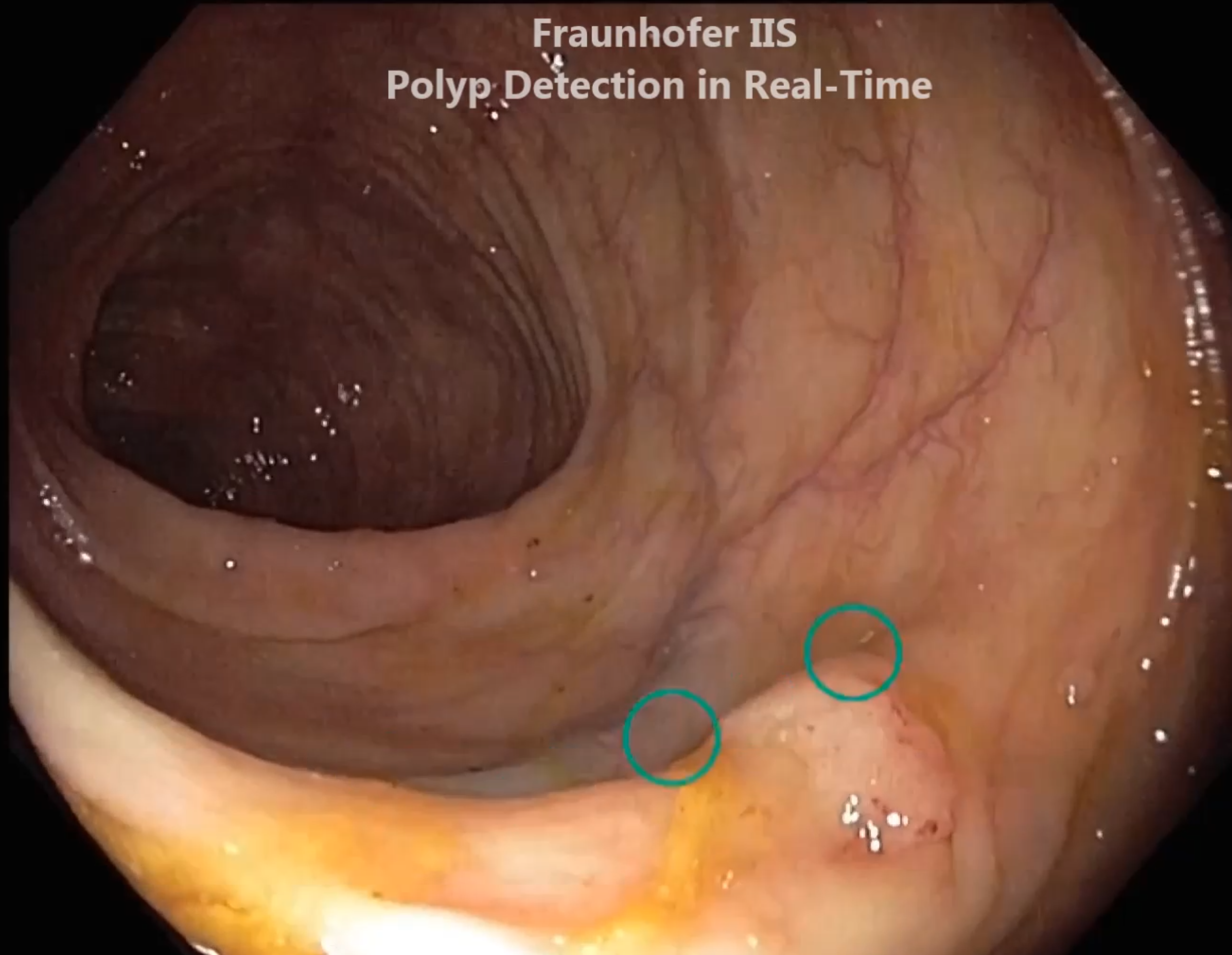Automatic real-time polyp detection during colonoscopic cancer screening
Erlangen, Germany: Colorectal cancer is the second leading cause of death from cancer in Germany, with an approximated annual mortality rate of 26,000 people. About 90 percent of these cancer cases feature adenomas in form of polyps – making their detection a key issue in order to preventing colon cancer. Within the scope of the “KoloPol” project, the Fraunhofer Institute for Integrated Circuits IIS has developed software that automatically detects and visualizes hypothesis of polyps, making screening for colorectal cancer potentially more efficient and effective. Fraunhofer IIS will present the real-time polyp detection solution at the Medica exhibition in Düsseldorf, Germany from November 14th to 17th, 2016.
Colorectal cancer ranks among the most common causes of death in Germany. It nearly always arises from polyps in the lining of the colon or rectum. These are usually asymptomatic – meaning they can only be identified during medical screening. Against this background, German legislators require public health insurers to cover regular colonoscopic colorectal cancer examination for patients aged 55 and older. During such a colonoscopy, a physician views the colon and rectum via an endoscope. Its effectiveness depends greatly on the training, experience and diligence of the person performing it: various studies suggest that between 12 and 24 percent of polyps are overlooked.
Enhanced recognition for faster, more accurate exams
As part of the “KoloPol” project, researchers at Fraunhofer IIS have developed software that aids doctors by automatically detecting polyp-like regions during colonoscopies. PD Dr. Thomas Wittenberg, head of the project and a Chief Scientist at Fraunhofer IIS, explains: “It automatically detects and highlights prominent sections of tissue with abnormal shape, coloration, texture, etc. The software could thus raise the recognition rate of pedunculated polyps – and, in addition to improved detection, could reduce the amount of time doctors spend on each exam.” Since July 2016, the system is undergoing technical validation at the University hospital Klinikum Rechts der Isar at the Technical University of Munich (TUM). Specifically, its operation and effectiveness is being tested in a clinical setting, and its detection of polyps during colonoscopies evaluated.
Solution to be showcased at the 2016 Medica exhibition
Fraunhofer IIS will be at booth G05 in hall 10 at the Medica fair – one of the world’s leading exhibitions for medical technologies – in Düsseldorf, Germany, from November 14th to 17th, 2016. It will present its technology for recognizing polyps in real-time, and connect with potential partners who are interested in deploying the system in their clinical environment.
The “KoloPol” project has been financially supported by the German Federal Ministry
for Education and Research (BMBF) within the scope of the VIP (Validierung des Innovationspotenzials wissenschaftlicher Forschung) funding program (grant code: 03V0669).
To find out more and watch videos of real-time polyp detection, visit: http://www.iis.fraunhofer.de/en/ff/med/prod/kolopol.html
